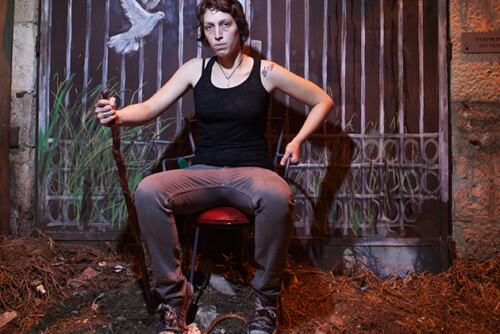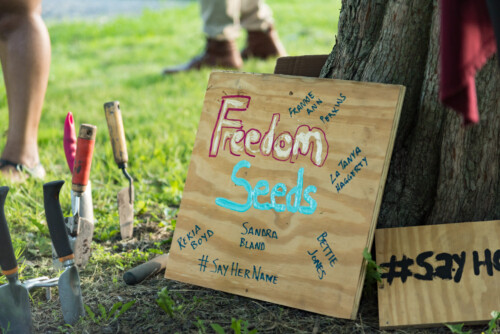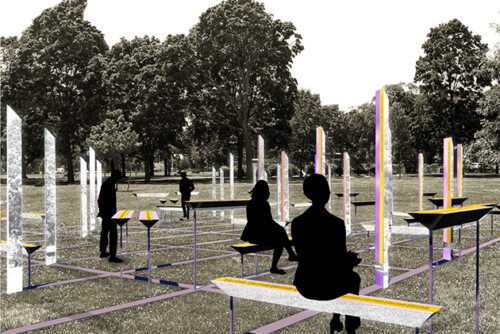In recent years, many African countries have witnessed public controversies and political debates over homosexuality and gay or LGBT rights. These have often received widespread international attention, with Uganda’s Anti-Homosexuality Act−signed into law by President Museveni in February 2014 (but later annulled by the Constitutional Court)−as the most well-known example. Many commentators have explained these controversies with reference to the prominence of religions, in particular Christianity and Islam, on the continent. 1 Against this background, in this article I explore some of the intersections of queer studies and religion in contemporary African contexts, examining whether and how queer studies can contribute to a deeper understanding of the politics and dynamics around same-sex sexualities, LGBT identities and rights, in Africa.
The (Im)Possibility of African Queer Studies
Inevitably, in view of the often-heard critique of queer theory as “white” and “western,” the question to begin with is whether queer theoretical approaches can be meaningfully employed in relation to African contexts at all. Two leading scholars in the study of African sexualities, Marc Epprecht and William Spurlin, have taken different positions in this debate. Epprecht writes in his book Heterosexual Africa? that he has become increasingly skeptical about the relevance and potential of queer theory for African sexuality studies, referring to queer theory’s heavy dependence on Western theoretical frameworks and empirical evidence. Queer theory, for Epprecht, “awaits a rigorously theorized indigenous term or terms grounded in African culture and contemporary struggles, sensitive to lessons learned through decades of Marxist, feminist, and postcolonial critiques of power and the sociology of science.” 2 However, he himself will not contribute to this as he concludes that “it is important to acknowledge but not to promote queer theory as a research strategy in Africa.” 3 Spurlin, whose work is picked on by Epprecht as an example of colonizing traditions of Western scholarship on sexuality in Africa, in turn has dismissed Epprecht’s rejection of queer theory as “downright absurd” because, he argues, queer theory precisely began by problematizing the very assumption of a normative sexuality that Epprecht seeks to debunk. 4 Acknowledging the western origins and hegemonies of queer scholarship, in his book Imperialism within the Margins Spurlin proposes to intersect queer studies with postcolonial theory in order to “decolonize assumptions in queer scholarship about sexual identities, politics, and cultural practices outside the West.” 5 His major criticism is that queer studies “has shown little interest in cross-cultural variations of the expression and representation of same-sex desire; homosexualities in non-western cultures have been, until very recently, imagined through the imperialist gaze of Euro-American queer identity politics, appropriated through the economies of the West or, at worst, ignored altogether.” 6 His concern that queer studies, by remaining Eurocentric, may help “to underwrite nationalist strategies at work in many postcolonial contexts that read homosexuality as foreign to nonwestern cultures” 7 is particularly relevant in African contexts where there is a strong popular perception that homosexuality is, indeed, a Western invention.
Contrary to Epprecht’s argument that African scholars and activists are “extremely reluctant to embrace the term queer,” 8 the term has recently been adopted, such as in the Queer African Reader edited by Sokari Ekine and Hakima Abbas, in the work of African academics such as Zethu Matebeni and Stella Nyanzi, and also in recent collections of African literary texts. 9 Ekine and Abbas acknowledge the limitations of queer in relation to African neo-colonial realities, but yet they adopt the term to denote a political frame: “We use queer to underscore a perspective that embraces gender and sexual plurality and seeks to transform, overhaul and revolutionise African order rather than seek to assimilate into oppressive hetero-patriarchal-capitalist frameworks.” 10 Although the volume does not so much engage with queer theory and only a part of the authors use the term queer, it provides rich material–academic and political writings, personal testimonies, conversations and artistic works–that grounds queer studies in African socio-cultural and political realities. More generally, it could be argued that queer theory’s most basic insight into sexuality as a socio-cultural construct draws attention to the variety of sexual and gender expressions in precolonial African societies; several historical and ethnographic studies have been conducted on this subject, providing rich empirical data queer studies could build on. 11 At the same time this basic insight interrogates contemporary discourses and politics that introduce LGBT as the preferable if not normative categories to define non-conforming sexuality and gender expressions in Africa and indeed globally. 12 Critical questions need to be asked: What new identities are being created here, whose norms do they correspond to, how do they relate to the variety of local terms and indigenous categories for same-sex practice and gender crossing, and how might this new form of queer visibility, that is, public LGBT sexual identities, actually go hand in hand with the production of homo-, bi-, and transphobia?
Queer Studies in Africa: Post-secular Moves
I am sympathetic to Spurlin’s decolonizing move, not just because it would be ironic, given its radical resistance to any form of essentialism, to say that queer theory is inherently western, but mainly because of the productive effects of such a move. One of these effects is that a decolonizing move in queer studies in African contexts would also incite a post-secular move. After all, one of the most evident illustrations of queer theory’s western bias is its largely secular character and its almost complete overlooking of religion as a relevant factor to take into account. As Melissa Wilcox has suggested, “perhaps religious discourse is the secret that queer theory has hidden (in plain sight) from itself.” 13 The virtual ignoring of religion in queer theory is already problematic vis-à-vis Western contexts but even more so vis-à-vis African contexts where religion is so enormously vital and plays crucial public and political roles. Religion is critical to at least two broad fields of enquiry in African queer studies.
First, queer studies has to engage with religion as an important locus of power and heteronormativity in contemporary African societies, such as in the popular discourses that conceive homosexuality and other dissident sexuality and gender expressions as contrary to African religious values. As part of the queer project to problematize, question and subvert normative categories of sexuality, and the practices, discourses and institutions that maintain them, scholars have begun to critically investigate the role of sexuality in nationalist ideologies and constructions of the nation. Parallel to the dynamics of homonationalism in Western contexts, in contemporary African contexts, dynamics of postcolonial heteronationalism or even anti-homonationalism can be observed. 14 As Basile Ndjio points out with reference to Cameroon and postcolonial Africa more generally, “the naturalisation of heteronormativity has been a central aspect of post-colonial African governmentality,” with sexuality having become a political and social landscape of privileged intervention by the post-colonial state seeking to purify the body of the nation. 15 The construction of a hegemonic, normative ideal of African heterosexual identity in postcolonial African societies is partly a continuation of the politics to regulate African sexuality initiated by missionaries and colonial administrators.
More recently, however, this form of hetero-nationalism has become more explicitly a form of anti-homonationalism in response to globalizing discourses and politics on sexual rights and LGBT identities. In several African countries this process has been reinforced by the emergence of Pentecostalism and its underlying political theology. In Pentecostal discourses, the demonization of homoeroticism and same-sex relations takes a particular form: it is informed by an ideology of Pentecostal nationalism where the sexual purity of the nation has eschatological significance and is believed to be under the threat of cosmic forces of evil. 16 The defense of this purity, then, becomes both a nationalist duty and a religious obligation. In countries like Uganda and Nigeria this type of religious thought has given rise to increased public and political opposition to homosexuality and LGBT rights, including the introduction of new legislation. A queer study of such Pentecostal (and similar religious) discourses could take different shapes. One way is the queering of Pentecostalism itself. Building on the charismatic, ecstatic and embodied nature of Pentecostal expressions of faith, and/or making use of strands within Pentecostal theology that are relatively positive towards sexuality–not purely linking it to procreation but also to pleasure, although typically within the context of heterosexual marriage–one could possibly interrogate some popular Pentecostal arguments against same-sex relationships. Another way is highlighting the dissonances within and subversions of the aforementioned religious and nationalistic discourses. In my recent work on Zambia I have examined how the constitutional status of Zambia as a Christian nation shapes debates about homosexuality in the country, and I have focused on marginal voices that are querying and possibly queering the Christian nation. 17 To give one example, an online commenter on the popular news website Zambian Watchdog wrote (in a style that is typical of many online discussions): “Am Zambia gay and I just say do not judge for u will be judged no sin is better than other sin so don’t say shit about gay bcoz we r here and we r Zambians.” The latter phrase, “we’re here and we’re Zambians,” reminds of the slogan, “We’re here! We’re queer! Get used to it!” which was used by the American organization Queer Nation in the 1990s. The phrase challenges the general public to accept a wider definition of who counts as a true Zambian. The prevailing exclusively heterosexual understanding of Zambian identity is interrogated here. The reference to sin also interrogates the Christian legitimation of a notion of Zambian identity that marginalizes, excludes and discriminates against LGBT people.Second, queer studies, if it really takes seriously African queer subjectivity, must contend with the fact that many LGBT people in Africa actually identify with the same religious traditions that are so vocal against them, including (and maybe in particular) the mushrooming Pentecostal churches. Epprecht calls it an “apparent contradiction’ that many LGBT people in Africa ‘are proudly, happily and deeply religious.” 18 However, the observation of African LGBT people’s religiosity can only come as a surprise, and be considered a contradiction, on the basis of certain assumptions–that religion is inherently homophobic, that religious commitment is a matter of individual choice, and that religious commitment conflicts with sexual identity–that need to be interrogated and complicated vis-à-vis the complex realities of contemporary African contexts. Rather than contemplating the ‘apparent contradiction’ that African LGBT religiosity would present, we need to in-depth explore and understand this religiosity. Crucial questions here center around the possible positive, empowering meaning religion has to African LGBT people and the way they negotiate sexual/gender and religious identities–in Wilcox’s words, “the grassroots sort of queering that religious LGBTI/Q people perform on a daily basis.” 19 Some critics may ask whether this queering is subversive enough, but then the counter-question is, ‘subversive enough for whom?’: for the people concerned, or for the Western queer scholar? Based on his research in Zimbabwe, Nathanael Homewood has recently demonstrated how Christian, in particular Pentecostal, practices provide a space for what he–with the queer theorists Lauren Berlant and Michael Warner–calls the “counter-intimacies” of Zimbabwean homosexual men who in “inventive ways … have crafted worlds in very normal–read: heteronormative–spaces.” 20 Highlighting the possibility of public and queer intimacy in the heteronormative spaces of Charismatic churches in Zimbabwe, Homewood challenges the definition of Berlant and Warner that queer world-making must be radical, anti-normative and actively aggressive politically. This point echoes the work of scholars such as Saba Mahmood whose approach, in the words of Claudia Schippert, has been “instructive to queer scholarship on gender and religion in successfully decentering the (often Western white male Christian) assumption of resistance or transgressiveness that the ‘ideal queer’ too often seems to posit.” 21 Similar studies that explore expressions of queerness in African religious spaces, and that question normative definitions of queerness as transgression, need to be conducted in other African contexts and religious traditions, providing rich empirical comparative material on which African queer studies can build. Thus, paraphrasing Spurlin, 22 I think it is imperative for queer studies in Africa to investigate how queer cultural, political and religious practices among African LGBT people help to (re)articulate a critique of both the popular nationalist claims that homosexuality is un-African and opposed to African cultural and religious values, and, at the same time, lead to a more self-reflective critique of the colonizing gestures of queer identity politics in the West that rely on Euro-American secular models of LGBT liberation.
- For a more detailed discussion, see Adriaan van Klinken and Ezra Chitando eds., Public Religion and the Politics of Homosexuality in Africa, (Routledge: New York, 2016).[↑]
- Marc Epprecht, Heterosexual Africa? The History of an Idea from the Age of Exploration to the Age of AIDS (Athens: Ohio University Press 2008), 171.[↑]
- Ibid., 16.[↑]
- William J. Spurlin, “Book Review of Marc Epprecht’s Heterosexual Africa? The History of an Idea from the Age of Exploration to the Age of AIDS,” African Studies Review 53:1 (2010), 159-162.[↑]
- William J. Spurlin, Imperialism within the Margins: Queer Representation and the Politics of Culture in Southern Africa, (New York: Palgrave Macmillan, 2006).[↑]
- Ibid., 17.[↑]
- Ibid., 17.[↑]
- Epprecht, Heterosexual Africa?, 14.[↑]
- Ekine Sokari and Hakima Abbas, eds., Queer African Reader (Dakar: Pambazuka Press, 2013); Stella Nyanzi, “When the State Produces Hate: Re-thinking the Global Queer Movement through Silence in The Gambia,” in Ashley Tellis and Sruti Bala (eds.), The Global Trajectories of Queerness: Re-thinking Same-Sex Politics in the Global South (Boston: Brill, 2015), 179-194; Zethu Matebeni, ed., Reclaiming Afrikan: Queer Perspectives on Sexual and Gender Identities (Cape Town: Modjaji, 2014); Karen Martin and Makhosazana Xaba, eds., Queer Africa: New and Collected Fiction (Braamfontein: MaThoko’s Books, 2013); Kevin Mwachiro, Invisible: Stories from Kenya’s Queer Community, (Nairobi: Goethe Institut 2013).[↑]
- Ekine and Abbas, Queer African Reader, 3.[↑]
- See for instance Marc Epprecht, Hungochani, The History of a Dissident Sexuality in Southern Africa (Montreal: McGill Queens University Press, 2004); Ruth Morgan and Saskia Wieringa, eds., Tommy Boys, Lesbian Men, and Ancestral Wives: Female Same-Sex Sex Practices in Africa (Sunnyside: Jacana Media 2005); Stephen O. Murray and Will Roscoe, eds., Boy-Wives and Female Husbands: Studies in African Homosexualities (New York: Palgrave, 1997); Chantal Zabus, Out in Africa: Same-Sex Desires in Sub-Saharan Literatures and Cultures (London: James Currey, 2013).[↑]
- See Peter Aggleton, Paul Boyce, Henrietta Moore and Richard Parker, eds., Understanding Global Sexualities: New Frontiers(New York: Routledge, 2013).[↑]
- Melissa M. Wilcox, “Outlaws or In-Laws? Queer Theory, LGBT Studies, and Religious Studies,” Journal of Homosexuality 52/1-2 (2006): 94.[↑]
- For the term homonationalism, see Jasbir Puar, Terrorist Assemblages: Homonationalism in Queer Times (Durham: Duke University Press, 2007).[↑]
- Basile Ndjio, “Sexuality and Nationalist Ideologies in Post-colonial Cameroon’, in Saskia Wieringa and Horacio Sivori, eds., The Sexual History of the Global South: Sexual Politics in Africa, Asia and Latin America (London: Zed Books, 2013), 120.[↑]
- Adriaan van Klinken, “Gay Rights, the Devil and the End Times: Public Religion and the Enchantment of the Homosexuality Debate in Zambia,” Religion 43/4 (2013): 519-540.[↑]
- See Adriaan van Klinken, “Homosexuality, Politics and Pentecostal Nationalism in Zambia,” Studies in World Christianity 20/3 (2014), 259-281; “Queer Love in a ‘Christian Nation’: Zambian Gay Men Negotiating Sexual and Religious Identities,” Journal of the American Academy of Religion 83/4 (2015), 947-964; “Christianity, Human Rights and LGBTI Advocacy: The Case of Dette Resource Foundation in Zambia,” in Adriaan van Klinken and Ezra Chitando, eds., Public Religion and the Politics of Homosexuality in Africa, (New York: Routledge, 2016), 229–242.[↑]
- Marc Epprecht, Sexuality and Social Justice in Africa: Rethinking Homophobia and Forging Resistance, (London: Zed Books, 2013), 66-67.[↑]
- Wilcox, “Outlaws or In-Laws?,” 94.[↑]
- Nathanael Homewood, “‘I Was On Fire’: The Challenge of Counter-intimacies within Zimbabwean Christianity,” in Adriaan van Klinken and Ezra Chitando, eds., Public Religion and the Politics of Homosexuality in Africa, (New York: Routledge, 2016), 243-259.[↑]
- Claudia Schippert, “Implications of Queer Theory for the Study of Religion and Gender: Entering the Third Decade,” Religion and Gender 1:1 (2011), 81. See also Saba Mahmood, Politics of Piety: The Islamic Revival and the Feminist Subject (Princeton: Princeton University Press, 2005).[↑]
- William J. Spurlin, “Broadening Postcolonial Studies/Decolonizing Queer Studies: Emerging ‘Queer’ Identities and Cultures in Southern Africa,” John C. Hawley, ed., in Postcolonial, Queer: Theoretical Intersections (Albany, State University of New York Press, 2001), 187.[↑]



